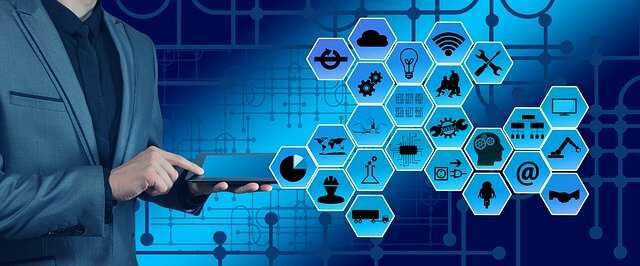Information Communication Technology (ICT)
Information and Communications Technology is the umbrella term used for accessing the information through telecommunications medium that includes internet, wired and wireless networks and other communications medium.
Advantages of ICT :-
- Efficiency and Productivity of Organizations have increased.
- Faster communication and electronic storage of company records.
- Automated processes help the employees handle larger workloads.
- E-mail, video conferencing and chat rooms between employees and supervisors as well as employees and clients enables faster business transaction from anywhere and at any time.
- Remote Access or Telecommuting or Telework enables employees to work from home.
- Transparency in governance has increased due to the increase in digitization.
- Use of ICT in research is immense. Increasingly customized software applications are being developed to help in research in all scientific subjects.
Disadvantages of ICT :-
- Maintenance and repair and updating and upgrading can get costly.
- Elimination of jobs is always thee due to increase in automation processes at the workplace.
- Increase in use of ICT has also increased the rate of cybercrime.
- Cybercriminals steal information in various ways by duping the computer user.
- In the past few years, hackers have brought down government servers.
Application of Information Communication Technology (ICT) :-
1) E-Governance
ICT is applied to enable provision of better and transparent public
service to the citizens. For examples, online tax payment, online passport application, online FIR etc.
2) E-learning
The students can study at their convenience and pace without the need to go to a classroom which saves the travel time.
The cost of the study is less than that of classroom study.
The lecture can be repeated multiple times.
Access and availability of e-lectures are always there.
For institutions, the student base can be increased greatly, which is not possible in a regular classroom where limited students can be accommodated.
3) E-Commerce
E-commerce includes trading of products and commodities using the digital medium.
The sellers sell online and the buyers buy online.
The use of the internet for trade has increased immensely over the past few years and many new companies and start-ups are first adopting the online mode of marketing and selling to reduce operational costs.
4) Telemedicine
The health services are provided using the telecommunications
network.
This includes evaluation, monitoring or consultation services provided by the
doctors without the patients visiting them in person.
Telemedicine also increases access of patients from remote or rural areas to speciality and quality medical advice.
5) Other
ICT can impact the environment and climate change and help humans to mitigate and adapt to these changes.
E-environment includes using ICT for protecting the environment and sustainable use of natural resources.
ICT can also be used for setting up monitoring systems to forecast disasters and monitor their impact.
Also, in ICT action has to be taken to develop sustainable materials for the production of components and safe disposal of debris generated from old computer parts.






0 Comments
Feel free to ask any doubt in comment section